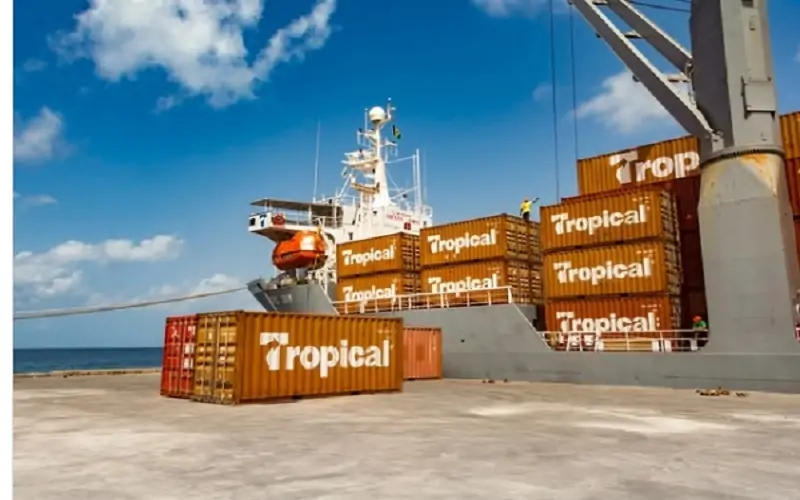- Gonsalves says USTR Proposal Could Destroy Caribbean Economies
St Vincent’s prime minister Ralph Gonsalves on Wednesday said if the United States implements the USTR proposal on Chinese-built ships going into and out of US ports, it will be one of the most severe blows to the economies of the Caribbean.
Gonsalves on Wednesday said, Pursuant to Section 301 of this U.S. Trade Act, the Trade Representative proposes certain measures, including the essential ones. A service fee is to be charged on Chinese maritime transport operators. The fee will be $1 million per entrance for any vessel entering a US port, or $1000 per net tonne based on the vessel’s capacity.
“What happened was five labour unions petitioned the US Trade Representative on this matter” The Chinese have control of maritime shipping. The Trump administration is determined to curb the influence of mainland China, both globally and in our hemisphere. It’s a new world. Consequences are unpredictable, but this one, if implemented, will cause real problems for our economies.”
The Caribbean Private Sector Organisation estimates that the measures, if implemented as proposed, would cause a 50 to 60% increase in shipping costs.” Furthermore, regional maritime service providers have stated that the measures could render shipping services to certain ports unfeasible. The findings of the US Trade Representative intensify the wider criticism of China’s “non-market economy” practices, which punitive tariffs are already targeting.
“The US Trade Representative considers it to be a deliberate and targeted effort by China to dominate maritime logistics and shipbuilding through uncompetitive practices. The US Trade Representative asserts that this is causing significant harm to the interests of the United States. In other words, China is playing them for a fool, they say. But the number of uncompetitive practices and controlling increasingly shipping. The measures proposed are intended by the US Trade Representative to counteract China’s efforts to dominate the shipping industry.”
How does it affect ships in the region?
Gonsalves said when one of Tropical Shipping’s vessels is coming down from the U.S., that’s one set of money, and if they pass through the US Virgin Islands or Puerto Rico, there is another charge.
“Caribbean shipping trade has linkages with the United States. Therefore, we are significantly affected by these policy measures. The main shipping line serving the region comprises a significant number of Chinese-built ships, mostly plying routes linked to ports in southern Florida. They come out of Jacksonville, West Palm Beach, Port Everglades, and the Port of Miami. As you are aware, Tropical Shipping is the primary operator on these routes, with at least 47% of its fleet being built in China. Seaboard Marine is another company that operates in our area, with around 48% of its fleet built in China. King Ocean also operates here, with about 25% of its fleet built in China.”
“Of course, there are other major shipping lines, such as CMA CGM Group, a French global leader in logistics solutions and the owner of the US flag carrier American President Lines, which has announced plans to expand their fleet flagged by what they call 30 by 30. They want to increase it by 30 Jones Act compliant vessels. What is a Jones Act compliance vessel? The Jones Act is the shortened title for the Merchant Marine Act of 1920, which mandates that goods transported between US ports must be carried on vessels built, owned, and crewed by Americans aiming to support the domestic maritime industry.”
What are the implications for our region of these fees?
Gonsalves said there would be higher fees for larger, heavier, newer ships. All of this is going to just increase freight rates significantly, and it would be passed on to the consumer.
“Possible implications of the proposed US regulations would include a reduction in the number of shipping lines off in the Caribbean. This disruption in the reliability of the supply chain Caribbean import-export services is a good possibility of disruption because if you don’t have the shipping lines, another competitive price reduction in vessel calls due to a further consolidation by carriers will reduce regional competitiveness, reduce predictability and reduce confidence in the supply chain. Less resiliency and sustainability for ports because if fewer of these ships come, the less money ports will make. Increased port operation expenses. Undoubtedly, this will have a detrimental effect on economic growth, revenue, and the creation of jobs. It will affect people’s social well-being, tourism, cruise ships, and the cruise ship sector, especially industries that rely on operators’ logistic services because hotels get supplies from ships. Hotels get supplies from these ships.”
What are we recommending?
“Among other things We have to lobby Congress and hope that our friends could help to influence the administration or friends in Congress. Of course there would be shipping interests who were doing this. Lobbying efforts Enlisting the leadership of the firms that could lose business in the Caribbean. And these firms, in turn, could seek to influence the congressional representatives or the Trump administration itself. We need to utilise our ambassadors in Washington to effectively engage with influential constituents. On Capitol Hill and individuals who have influence. We are to stress the extreme effects of these measures on Caricom states because we do not have alternative shipping options in the short term.”


